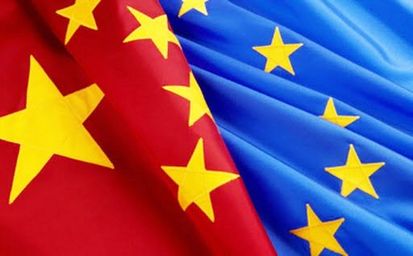
Since the victory of Donald Trump in the US presidential election, opinion leaders worldwide, especially those in Brussels, have been putting forward proposals on the evolution of global leadership and warning against the consequences of the United States' refusal to fulfill its global commitments.
When Trump tweeted that he would not recognize the Paris climate change agreement, a hard-won deal that brought the world together to tackle a global threat, some observers said it will help bring China and the EuropeanUnion closer in this endeavor. And after Trump entered the White House on Jan 20 and announced the US' withdrawal from the Trans-Pacific Partnership agreement and the freezing of the Transatlantic Trade and Investment Partnership, two flagship free trade deals of his predecessor Barack Obama, some said that the decisions will push the EU toward Asia and this is the right time for China to join the TPP.
Given the internal challenges and external problems faced by the EU and the protectionist policy of Trump, some experts even say China now has the opportunity to lead the world. And since the Trump presidency seems to influence a change in the global order and governance structure, the EU headquarters in Brussels may be rethinking its China policy. Some even say, the EU could even relax its tough regulations against China's growing exports and investment activities.
While such a development is welcome, what should be encouraged now are constructive discussions on a healthy and proper course of global leadership. Current debates mainly focus on China's rising role and how the vacuum created by the US 'withdrawal from global engagement can be fulfilled. Such discussions, however, are not constructive because they are based on zero-sum game stereotypes.
Indeed, China has intensified its investments worldwide. But compared with the accumulated investment volumes of the US, the EU and Japan across the world, China's share is far from being impressive.
China is the second-largest country in terms of economic output but accounts for less than two-thirds of the US' output, and its per capita GDP lags far behind that of the US.
The EU, on the other hand, still consists of 28 member countries and 500 million consumers. It is still the world's largest economy, ahead of the US in terms of total economic output. Which means all the countries in today's multi-polar world must contribute constructively to overcome the challenges facing us and all of them should come together to discuss how to devise the rules of the game.
In this context, the World Economic Forum has taken the lead in debating what is "responsible and responsive" leadership, which the world badly needs today.
President Xi Jinping has also set the tone by encouraging global players to contribute collectively for the healthy development of the world economy. Many EU leaders and observers have recognized the significance of Xi's call, because it focuses on a fairer and inclusive global leadership and governance structure.
This is to say that even though China and the EU are playing a significant role in building global governance, be it to fight climate change or maintain peace, the US should also be part of the process.
So the EU, China and other global powers should put more pressure on the Trump administration to abandon its protectionist and isolationist policies, because they would only harm global trade and governance.
Besides, trilateral dialogues with Beijing, Brussels and Washington should be organized to make the Trump administration pay heed to constructive ideas. Such dialogues should be aimed at improving global governance, as well as prompting Brussels to make its China policy fairer.
Hopefully, these changes can be brought about in the next year or two, so as to promote healthier and fairer global governance on issues such as climate change and global trade.
The author is deputy chief of China Daily European Bureau. [email protected]

